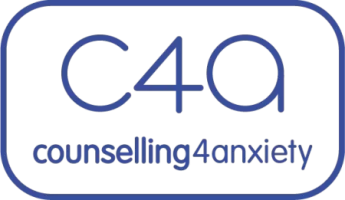Obsessive Compulsive Disorder (OCD) is something that is being discussed more as society finally starts to place mental health 'front and centre' in our lives. Thankfully, we are finally linking our mental and physical health together when treatments have historically separated them.
In this blog, I wanted to talk about the sense of 'responsibility' that many people with various forms of OCD feel. When I speak of responsibility, it is not so much a sense of being responsible to themselves, through cleaning items - for example. It is more a deep and acute sense of responsibility that people who experience OCD feel about ensuring that others are not affected, hurt or harmed. This is where the basis of the anxiety reaction sits when they think of this possible situation. (I also need to add that OCD is an anxiety condition and that at its root, is the inability for people with the condition to be at ease with uncertainty and there is a tendency for 'black and white' thinking and absolute surety, which we all know is not possible with many things in life. Allied to this is a sense that the severity and likelihood of threat to others or to the individual is far greater that it is and with a corresponding under-estimation of a sense that they will be able to get through the thought and the situation. This is also where the anxiety 'overwhelm' is felt).
The thing that counsellors and therapists need to point out to people with OCD is that the basis of such thinking is premised on unhelpful thinking patterns which are sometimes called 'cognitive distortions' - you can see why I think that 'unhelpful thinking patterns' is a much better term. Working with individuals to help them understand what the patterns of unhelpful thinking are and letting them come to a place where they can recognise and pick out what they are doing, is essential to the start of the process of getting them to have some distance between themselves and the OCD. Furthermore another essential in the treatment of OCD in therapy is to work with the client to see and understand that the OCD generated thoughts or cognitions do not represent who they are, their morals or their values. So getting the client to start to develop that cognitive distance is key.
What Can Counsellors or Therapists do?
Exploring with clients how 'responsibility' shows up in their OCD is something that is a 'must do' within therapy work. In particular, exploring how the obsessional thinking is related to how it may affect other people. For example, I worked with a client whom I will call 'James' to protect his identity. James had 'Cleaning OCD' and that meant that he would endlessly wash his hands, wash the taps, throw his soap away and wash the walls and then wash his hands again. These cycles could go on for hours and he said that he lost between 4-6 hours a day in the bathroom. He also urinated and defecated less since that would double the hours in the toilet and he had abdominal pains which was not surprising since his body wanted to excrete toxins and digested food and he was fighting against the urge to 'go'. So, there were long term wider health implications that the OCD was stimulating and creating, which James recognised.
However, one of the drivers of his compulsions for washing and cleaning, was that he had to be sure (notice the 100% surety element here), that he would not be a carrier of germs and bacteria that could lead to someone getting sick and ultimately dying. This driver was leading James to unhelpful thinking styles that were founded on catastrophising, fortune telling and black and white thinking to name a few. By explaining to James that one of the things that OCD does it to significantly exacerbate the 'responsibility' element that they feel, this started to give him some insight into this area that was driving the anxiety response. As suggested, I also worked with him to recognise the immediacy of his automatic thoughts which were based on unhelpful thinking styles.
Further sessions with James explored his core beliefs, 'sitting with and going through the 'anxiety cycle' and curve, and helping him to feel safe, secure and held so that he could feel that he could go through the anxiety cycle and right the way through to when his body would start to relax; for this is when the emotional and psychological 'reset' in thinking would occur.
So, to summarise, counsellors or therapists should actively be aware of the 'responsibility' guilt that is exacerbated by OCD. It is a part of the work that needs airing and reflecting on in therapy sessions with clients who have anxiety and OCD.

